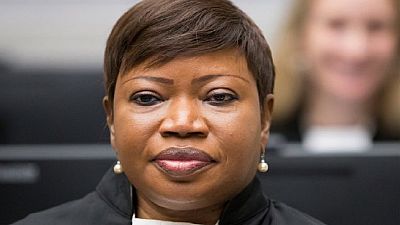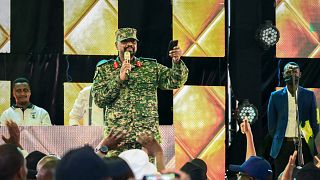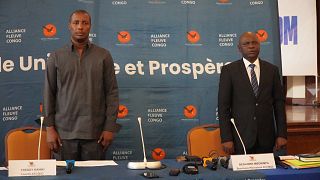Democratic Republic Of Congo
The International Criminal Court (ICC) has disclosed that its team of investigators are already in the Democratic Republic of Congo (DRC) as part of preliminary efforts to get first hand information on the volatile political situation in the country.
A statement issued by the ICC’s chief prosecutor, Fatou Bensouda said, ‘I have been deeply concerned by the critical situation and recent incidents of violence in the Democratic Republic of the Congo.
‘‘Particularly the events and certain alleged acts that took place in Kinshasa in September 2016, which could constitute crimes within the jurisdiction of the International Criminal Court (“Court” or “ICC”). They will be in the country between October 16 to 20.
A delegation from the ICC are visiting the #DRC to urge restraint following the recent violence in the capital #Kinshasa – statement
— Rachael Akidi (@rakidi) October 17, 2016
The statement noted that the investigators will over the five days stay in the DRC, meet political stakeholders in the country, civil society groups and the press. The ICC whiles calling for restraint on the part of all stakeholders warned that it will not hesitate to charge persons who violate international laws by the actions and words.
“I reiterate that any person who commits, orders, incites, encourages, or contributes in any other way to the commission of crimes under the jurisdiction of the court is liable to prosecution,” the statement added.
The ICC said it had been monitoring the situation in the DRC since 2004. On September 23, the gloabl judicial outfit issued a statement following violent protests in the capital Kinshasa. The statement warned that the ICC was ‘‘monitoring the situation on the ground with the utmost vigilance.’‘
DRC’s Constitutional Court on Monday ruled that the electoral body could postpone elections and tasked them to prepare a new calendar. This was after opposition parties rejected the body’s proposal that polls could only hold in 2018.
The government had before the ruling entered an agreement with some smaller parties to delay next month’s elections to April 2018. The move angered key opposition groups who have accused President Joseph Kabila of trying to cling onto power.














01:01
Trial of DRC's former Justice Minister Constant Mutamba postponed for two weeks
Go to video
Togo protest crackdown raises fears of worsening political crisis
Go to video
Tunisia sentences prominent opposition leader to 14 years in prison
01:01
Chad’s former Prime Minister appeals to Macron after two months in detention
02:21
Ivorian diaspora in Paris demands free and inclusive elections ahead of October vote
02:16
Kenya's William Ruto faces growing discontent over economy and police brutality